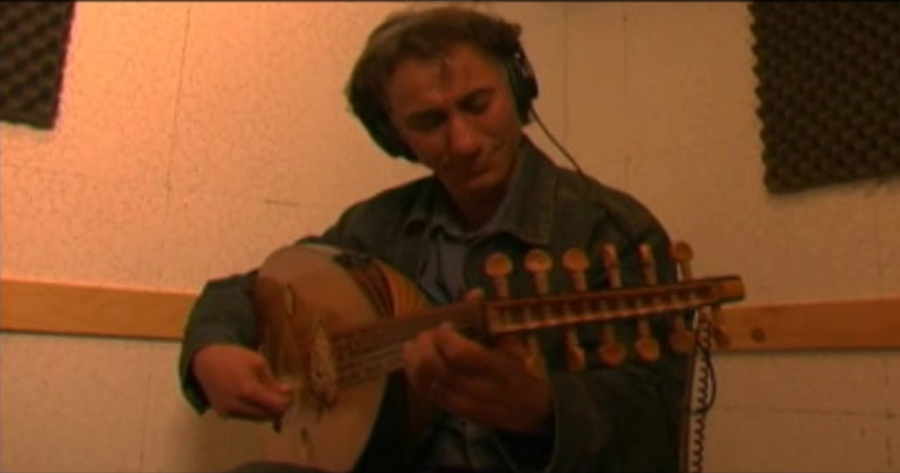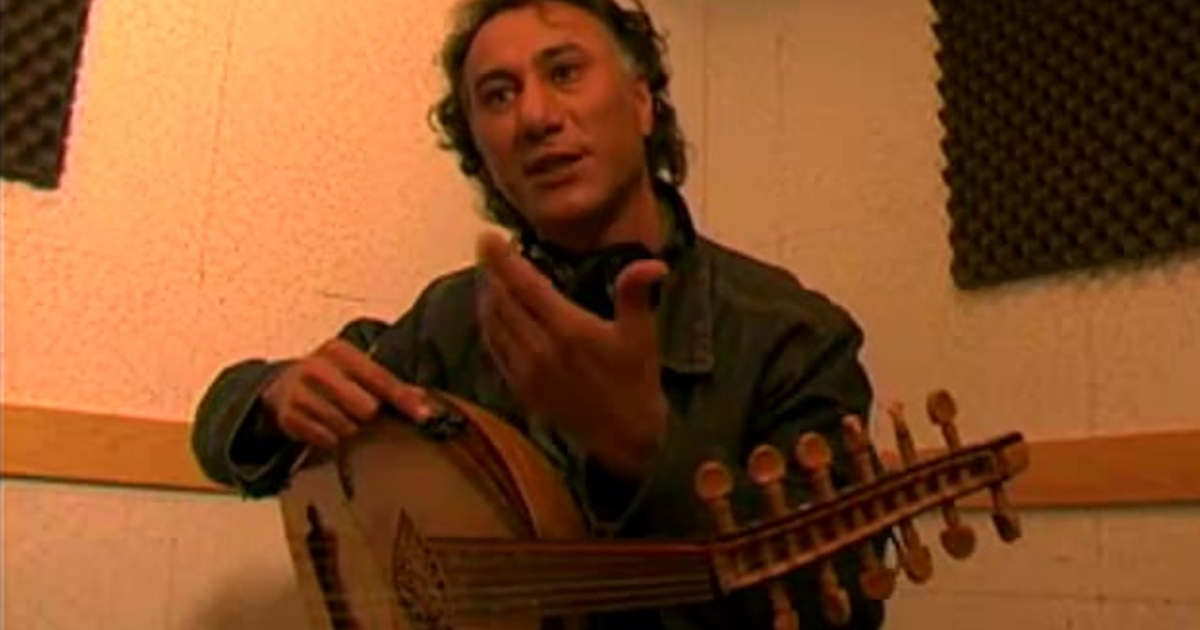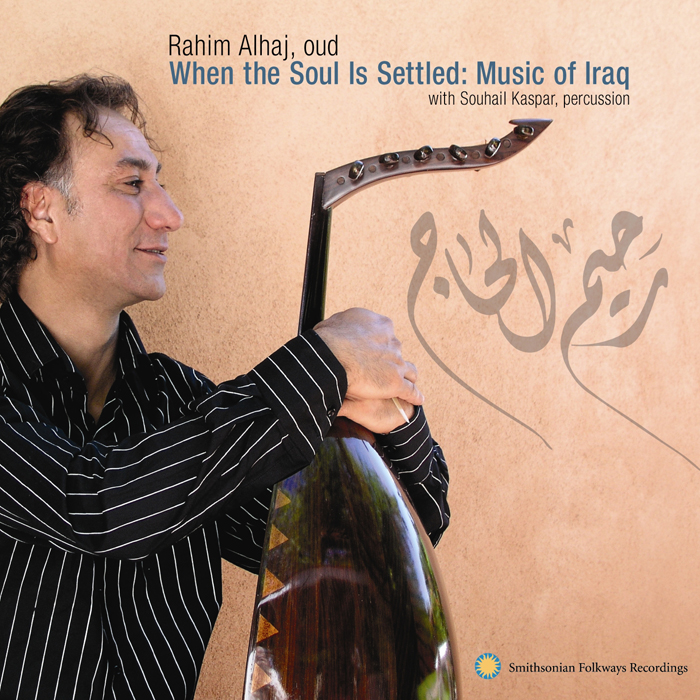Rahim Alhaj
Oud soloist and composer Rahim Alhaj has carried his (roughly) five-thousand-year-old music tradition more than seven thousand miles, from his birthplace in Baghdad to his current home in Albuquerque, New Mexico.
The political map of Iraq's boundaries today include the regions where ancient Ur, Sumer, and Babylon arose, flourished, and finally fell. Indeed, Baghdad occupies one of the oldest continually inhabited spots on Earth, near the confluence of the Tigris and Euphrates rivers. Scholars believe that the instrument Alhaj plays, a short-necked Arabian lute called the oud (Arabic: al 'ud), originated in that region along with cities, the cultivation of food crops, and one of the very earliest written languages.
Alhaj was born in Baghdad, and he began playing oud at age nine. He performed his first solo concerts when he was fourteen, by which time his passion and talent for music already were obvious.

Alhaj attended the Baghdad Conservatory of Fine Arts' six-year program beginning in 1984, studying under Munir Bashir, a master teacher and among the best-known oud players of the 20th century. Alhaj also studied with the influential composer and oud player Salim Abdul Kareem and composer Jamil Bashir, Munir's brother. He graduated with honors and a degree in music composition, and picked up another degree in Arabic literature from Al Mustansiriyah University in Baghdad.
But life under Saddam Hussein's rule was oppressive. Young Alhaj not only resolutely refused to join the ruler's Baath party, even though this severely limited his professional opportunities, and instead was active in the artistic resistance, opposing the regime and writing protest songs. For that he twice landed in prison in the latter half of the 1980s, once for a year and a half, where he suffered painful and regular beatings by his jailors. Fearing for her son's life, his mother raised tens of thousands of dollars shortly after the first Gulf War (1991) to obtain false identity papers and help him leave his native land. Alhaj recounts that she sold virtually everything she had to pay his way to freedom. He saw her alive only once more, when he visited his homeland in 2004 for the first time in thirteen years.

Interviewed on USA's National Public Radio late in 2006, he recalled:
"I had never been away [from home] until I left Iraq, actually. When I crossed the border between Iraq and Jordan, they took my instrument from me. And this is the saddest moment in my entire life.... [At that moment] I had a choice between: leave my instrument or have life. I had to leave. And so I left Iraq and left my instrument. And now I have a beautiful, beautiful oud from Iraq."
According to an article in Smithsonian magazine in November 2006, the oud he plays today was made by a childhood friend, Farhan Hassn, who still lives in Iraq. The face of the instrument is inlaid with images of two homing pigeons, such as Alhaj and Hassn raised in Baghdad when they were boys. Today, Alhaj raises homing pigeons in his backyard.

Alhaj lived in Jordan for three years, then moved to Syria, where he met and married Nada Kherbik. They came to the United States under a UN refugee resettlement program in 2000 and made a home for themselves in Albuquerque. Along with the general devastation he witnessed during his 2004 visit were personal losses. His father had passed away in the intervening years and the music conservatory—his alma mater—was empty, burned and silent.
Alhaj is both composer and instrumentalist, performing concerts solo concerts throughout North America, in the Near East and Western Europe. Recently he has performed his own compositions with several string quartets and a symphony orchestra, with extensive tours planned in 2008 and beyond. Rahim Alhaj is one of a very few professional oudists actively re-vitalizing and thereby preserving the Iraqi art music tradition in our time.
His Smithsonian CD was released in October 2006 and is entitled When the Soul Is Settled: Music of Iraq. He is accompanied on the disc by Souhail Kaspar, a Lebanese-born master percussionist now based in California, Mr. Alhaj's first CD, The Second Baghdad (2002) and the next, Iraqi Music in a Time of War (2003), are both available on VoxLox Records. The 3rd release was a collaboration with the Saddaqa String quartet, entitled Friendship: Oud/String Quartet Ensemble (2005), Fast Horse Recordings.


